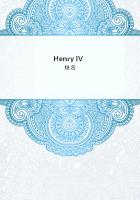9. The Rich Man and Lazarus. -- With the features of this parable, as found in Luke 16, which is supposed to prove the dead conscious, and Spiritualism possible, the reader is doubtless familiar. It should ever be borne in mind that this is a parable; and in a parable, neither the parties nor the scenes are to be taken literally, and hence no doctrines can be built upon such symbolic representations. But not only is it a parable, but it is a parable Based upon traditions largely entertained by the Jews themselves in the time of Christ. Thus T. J. Hudson ("Law of Psychic Phenomena,"p. 385) says:-- "It is a historical fact, nevertheless, that before the advent of Jesus, the Jews had become imbued with the Greek doctrine of Hades, which was an intermediate waiting station between this life and the judgment.
In this were situated both Paradise and Gehenna, the one on the right, and the other on the left, and into these two compartments the spirits of the dead were separated, according to their deserts. Jesus found this doctrine already in existence, and in enforcing Page 58 his moral precepts in his parables, he employed the symbols which the people understood, neither denying nor affirming their literal verity." Thus Christ appealed to the people on their own ground. He took the views and traditions which he found already among them, and arranged them into a parable in such a way as to rebuke their covetousness, correct their notions that prosperity and riches in this life are tokens of the favor and approbation of God, and condemn their departure from the teachings of Moses and the prophets. As a parable, it is not designed to show the state of the dead, and the conditions that prevail in the spirit world, But if any persist that it is not a parable, but a presentation of actual fact, then the scene is laid, not in the intermediate state, but beyond the resurrection; for it is after the angels had carried Lazarus into Abraham's bosom. But the angels do not bear any one anywhere away from this earth, till the second coming of Christ and the resurrection of the dead. Matt.
24: 30, 31; 1 Thess. 4: 15-17. Finding no support .in this portion of scripture for the conscious-state theory, with its spiritualistic possibilities, appeal is next made by the friends of that theory to the case of --10. The Thief on the Cross. -- Luke 23: 39-43. When one of the malefactors who were crucified with Jesus, requested to be remembered when he should come into his kingdom, according to the record in the common version, the Lord replied, "To-day shalt thou be with me in paradise."To Page 59 go from death into paradise the same day, means to go into the spirit world without a body, or discarnated, as Spiritualists claim. And so it would be if such was Christ's promise to the thief; but it was not.
The little adverb "to-day" holds the balance of power as to the meaning of this text. If it qualifies Christ's words, "Verily I say unto thee,"it gives one idea; if it qualifies the words, "Thou shalt be with me in paradise," we have another and very different idea. And how shall the question of its relationship be decided? -- It can be done only by the punctuation.
Here another difficulty confronts us; for the Greek was originally written in a solid line of letters, without any punctuation, or even division into words. Such being the case, the punctuation, and the relation of the qualifying word "to-day," must be determined by the context. Now it is a fact that Christ did not go to paradise that day. He died, and was placed in the tomb, and the third day rose from the dead. Mary was the first to meet him, and sought to worship him.. But he said, "Touch me not, for I am not yet ascended to my Father." John 20: 17. Paradise is where the Father is (see 2 Cor. 12: 2-4; Rev. 2:7; 22: 1, 2), and if Christ had not been to his Father when Mary met him the third day after his crucifixion, he had not then been to paradise; therefore it is not possible that he made a promise to the thief on the day of his crucifixion, that he should be with him that day in paradise. Page 60 But further, the day of the crucifixion was the day before the Sabbath;and it was not lawful to heave criminals on the cross during that day.
John 19: 31. If they were still living when the time came to take them from the cross, they were taken down, and their legs were broken to prevent their escape. The soldiers on this occasion broke the legs of the two thieves because they were still alive; "but when they came to Jesus and saw that he was dead already, they brake not his legs." Verses 32, 33. The thief therefore lived over into the next day.
Thus there are two absolutely insuperable objections against allowing the adverb "to-day," to qualify Christ's promise, "Thou shalt be with me in Paradise:" (1) Christ did not go to paradise that day; and (2) The thief did not die that day. Before these facts the conscious-state argument built upon this incident, vanishes into thin air. Just place the comma (a punctuation mark not invented till 1490) after "to-day" instead of before it, and let that word qualify the verb "say" and emphasize the time when it was spoken, and all is harmonious. The thief's request did not pertain to that day, but looked forward to the time when Christ should come into his kingdom;and Christ's promise did not pertain to that day, but to the time in the thief's request; so he did not falsify it by not going to his Father for three days afterward The thief is quietly slumbering in the tomb; but Christ is soon coming into his kingdom. Then the thief will be Page 61 remembered, be raised from the dead, and be with Christ in that paradise into which he will then introduce all his people. Thus all is as clear as a sunbeam, when the text is freed from the bungling tinkering of men.















